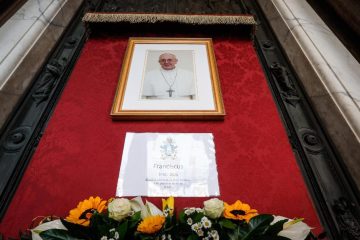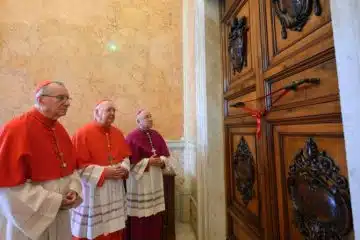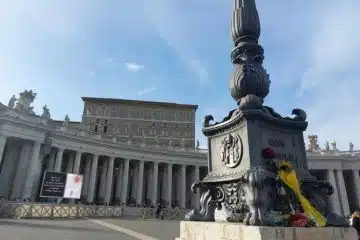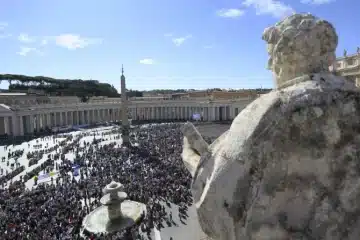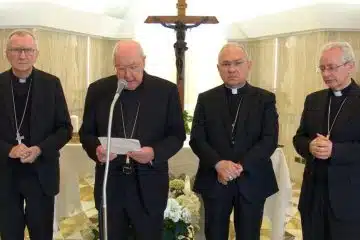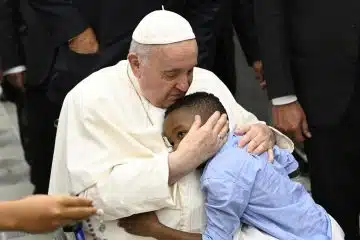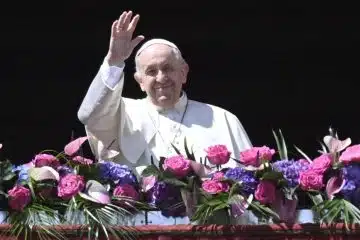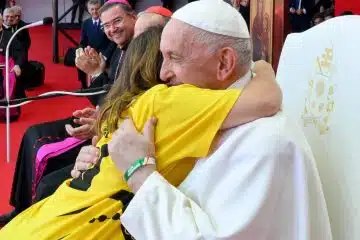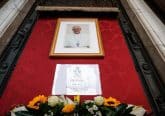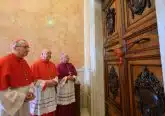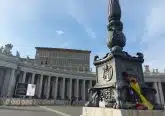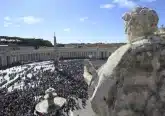Pope Francis: Migrants bearing brunt of ‘aggressive’ nationalism and ‘radical individualism’
CNA Staff, May 6, 2021 / 06:10 am America/Denver (CNA).
Pope Francis said Thursday that “aggressive forms of nationalism and radical individualism,” exposed during the pandemic, are having a severe impact on migrants worldwide.
In his message for the World Day of Migrants and Refugees, issued May 6, he said that the coronavirus crisis had highlighted the deep divisions between human beings.
“Our ‘we,’ both in the wider world and within the Church, is crumbling and cracking due to myopic and aggressive forms of nationalism and radical individualism,” he said.
“And the highest price is being paid by those who most easily become viewed as others: foreigners, migrants, the marginalized, those living on the existential peripheries.”
The World Day of Migrants and Refugees, instituted in 1914 by Pope Pius X, is celebrated annually on the last Sunday in September. This year it falls on Sept. 26.
In his message for the day’s 107th commemoration, entitled “Towards an ever wider ‘we’,” Pope Francis addressed what he called a “twofold appeal,” to Catholics and the wider world, to embrace those on the margins.
He urged Catholics “to make the Church become ever more inclusive.”
“In our day,” he wrote, “the Church is called to go out into the streets of every existential periphery in order to heal wounds and to seek out the straying, without prejudice or fear, without proselytizing, but ready to widen her tent to embrace everyone.”
“Among those dwelling in those existential peripheries, we find many migrants and refugees, displaced persons and victims of trafficking, to whom the Lord wants his love to be manifested and his salvation preached.”
He appealed to those outside the Church to work with Catholics to build “a future of justice and peace.”
“Our societies will have a ‘colorful’ future, enriched by diversity and by cultural exchanges. Consequently, we must even now learn to live together in harmony and peace,” he commented.
He continued: “Today’s migration movements offer an opportunity for us to overcome our fears and let ourselves be enriched by the diversity of each person’s gifts. Then, if we so desire, we can transform borders into privileged places of encounter, where the miracle of an ever wider ‘we’ can come about.”
The pope argued that greater solidarity was also necessary “to ensure the proper care of our common home.”
He said: “Ours must be a personal and collective commitment that cares for all our brothers and sisters who continue to suffer, even as we work towards a more sustainable, balanced and inclusive development.”
“A commitment that makes no distinction between natives and foreigners, between residents and guests, since it is a matter of a treasure we hold in common, from whose care and benefits no one should be excluded.”
In an intervention prepared for a Vatican press conference launching the pope’s message, Cardinal Michael Czerny noted that the text developed themes in the pope’s latest encyclical, Fratelli tutti.
Referring to the pandemic, he said: “We are all suffering in different ways. What happens when the survivors in a lifeboat must all help to row to shore? What if some take more than their share of the rations, leaving others too weak to row? The risk is that everyone will perish, the well-fed and the starving alike.”
Czerny, the under-secretary of the Migrants and Refugees Section of the Vatican’s Dicastery for Promoting Integral Human Development, added: “Widening the Good Samaritan attitude — overcoming selfishness and caring for all — is essential to survival.”
During the press conference, a video campaign for the World Day of Migrants and Refugees was presented, featuring Bishop Mark Seitz of El Paso describing the situation on the border between Mexico and the United States.
He said: “I’ve found the most rewarding opportunities of my life serving here at the border. I’ve learned that borders can be vibrant places of encounter and welcome — encounters that enrich us. I’ve learned that we are all interconnected as one human family. We stand or fall together. We build walls and fences which divide us. Today people of faith need to be bridge builders.”
Speaking via video link, Bishop Paul McAleenan, an auxiliary bishop of the English diocese of Westminster, said that the pope’s message offered encouragement to Catholics in the U.K.
He said: “Pope Francis draws our attention to the interconnectedness of humanity: my decisions and actions here affect others who are far away.”
“Three areas in particular directly affect the human family today. The decision of the United Kingdom to reduce its aid budget compounds the suffering of the world’s poorest. Nations engaging in the arms trade bring endless misery to those in places of conflict. Our contribution to the climate emergency results in droughts, disasters and displacement thousands of miles away. Understanding the reasons for migration must include the acknowledgement that we are not blameless.”
Also speaking via video link, Sarah Teather, director of the Jesuit Refugee Service UK, said that in her work she witnessed the lack of solidarity that Pope Francis described in his message.
“Faced with those who fled their homes and sought sanctuary, the asylum system builds walls of suspicion to stop them receiving the protection they need,” she explained.
“It detains them and enforces destitution. Destitution makes many vulnerable to abuse and exploitation, and they speak of the sense of losing themselves through years struggling at the margins.”
She highlighted the success of a project in which religious congregations and families welcome homeless asylum seekers into their homes.
She said: “Together, they create a counter-culture to the hostile public policies that render people homeless and marginalized.”
“In small, concrete ways, we can all participate in this shared project to recompose a common human family. For there are treasures to be found when we strive together to break down walls that divide us. The dream of one human family is a dream worth realizing.”
Pope Francis closed his World Day of Migrants and Refugees message with an appeal to people to “dream together” of a better future for all humanity.
He concluded with a prayer:


